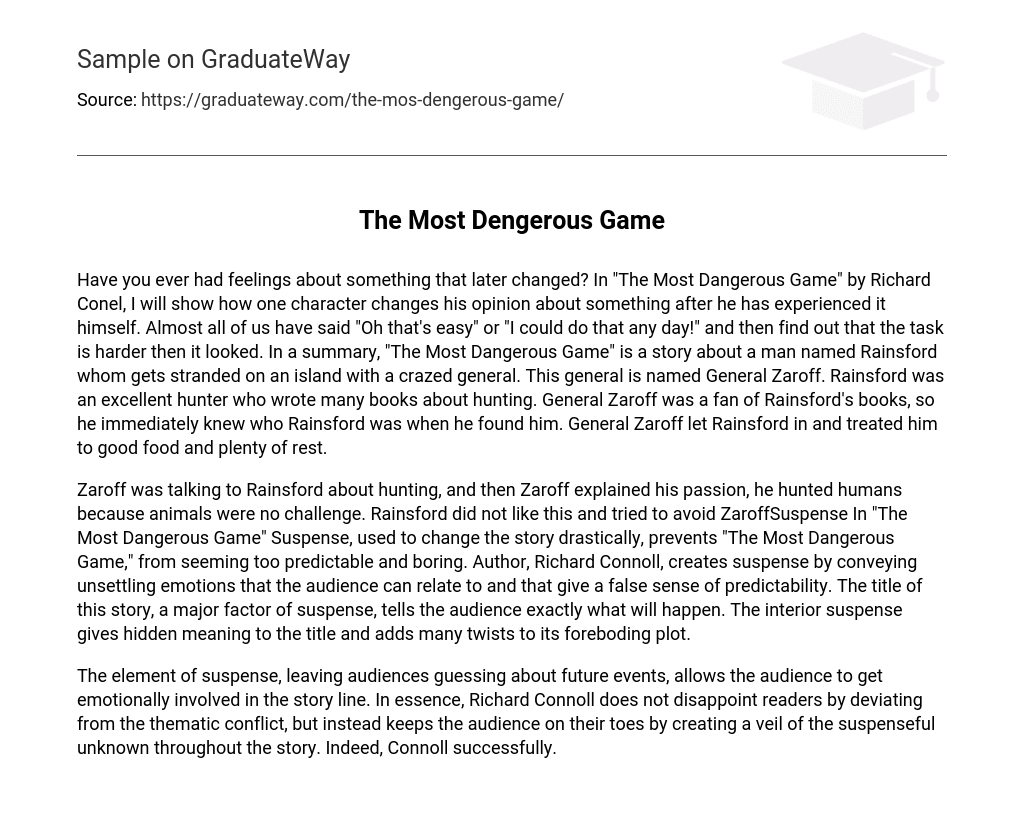In “The Most Dangerous Game” by Richard Conel, one character undergoes a transformation in his perspective after personally experiencing it. Many of us have confidently claimed that a task is easy, only to be proven wrong when we attempt it ourselves. In summary, the story revolves around Rainsford, a skilled hunter who becomes stranded on an island with a deranged general named Zaroff, who happens to be a fan of Rainsford’s hunting books. Showing hospitality, Zaroff welcomes Rainsford with delicious food and ample rest.
In the conversation between Zaroff and Rainsford, Zaroff expresses his enthusiasm for hunting humans rather than animals, as they pose no challenge. This revelation displeases Rainsford, who attempts to distance himself from Zaroff. Richard Connoll effectively utilizes suspense in “The Most Dangerous Game” to prevent the story from becoming monotonous and predictable. Through evoking unsettling emotions that resonate with readers, Connoll skillfully creates a false sense of predictability. The title of the story itself contributes to this suspense by foreshadowing what is to come. Furthermore, the internal suspense within the plotline adds depth to the title and introduces unexpected twists.
The use of suspense in Richard Connoll’s writing keeps the audience engaged and emotionally connected to the story. By maintaining a sense of unknown and anticipation, Connoll ensures that readers remain interested and invested in the unfolding events. Consequently, he effectively captivates his audience throughout the narrative, not straying from the central conflict but instead building suspense and intrigue.





